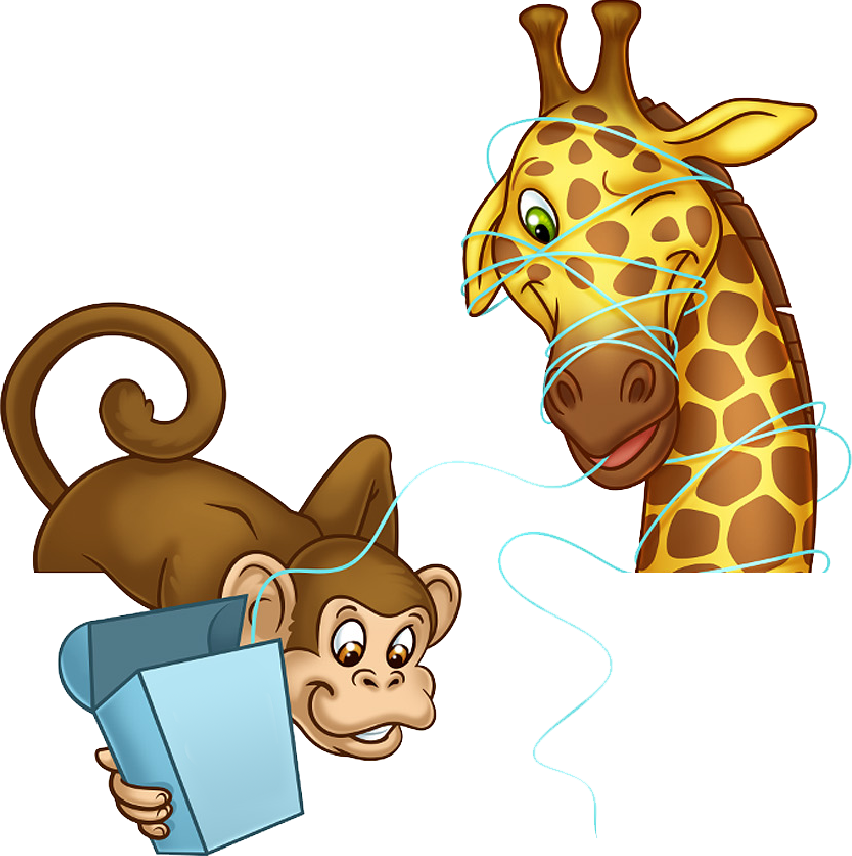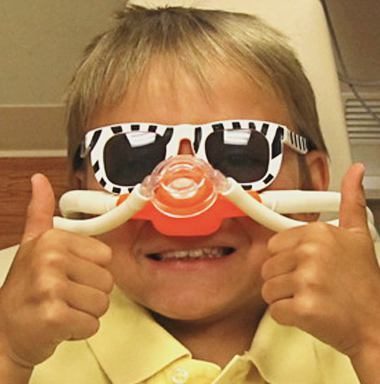What is Sedation Dentistry?
Sedation dentistry provides safe, comfortable dental treatment for patients with special needs or anxiety. Sometimes called relaxation dentistry, sedation dentistry is a method of managing pain and anxiety during professional dental care through the use of medication. In addition, young patients have a difficult time sitting through a half hour or longer of treatment and medications allows the patient to be more cooperative.
Sedation Dentistry Helps the Following:

- High fear of dental care
- Complex dental problems
- Traumatic dental experiences
- Fear of “shots”
Inhalation Sedation and Oral Sedation are the two most common types of sedation in Pediatric Dentistry
Both of these methods work quickly, the patient is awake, and their effects are reversible.
Inhalation Sedation
Inhalation sedation uses Oxygen and Nitrous Oxide (laughing gas) to help your body achieve a relaxed state. This is the most popular form of sedation used in dentistry today. Nitrous oxide/oxygen inhalation is a safe and effective technique to reduce anxiety, gag reflex, and enhances effective communication with the patient during the procedure. Your child will smell a sweet, pleasant aroma and experience a sense of well-being and relaxation. Patients remain alert, awake and can talk to dentists and staff during their treatment. The onset is quick, the effects are fully reversible, and recovery is rapid. When treatment is complete, the nitrous is turned off and oxygen is administered for 5 to 10 minutes to help flush any remaining gas. The effects wear off almost immediately. Our dentists will evaluate your child if nitrous oxide/oxygen is right for him or her.
Oral Sedation
Another form of conscious sedation involves the use of oral sedatives to reduce anxiety and allow for safe dental procedures. The pediatric dentist will evaluate your kid and decide if he or she is a good candidate to receive sedation medication. He or she will then administer the medication the day of the appointment. Through this type of dental sedation your child will experience deeper relaxation while still being conscious. Your kid will be able to speak and respond to questions while feeling relaxed and sometimes will drift off to sleep during dental treatment. Our staff will closely monitor and ensure the safety of your kid during and after each appointment. Some of the medication will also have an amnesiac effect so your child will not remember the dental procedures being done and help lower anxiety for future dental appointments.
Sedation dentistry allows your doctor to provide a variety of dental treatments safely and comfortably for patients who experience anxiety when visiting the dentist. There are several benefits to sedation dentistry, including:
- Little memory of procedure
- Little sense of time while under sedation
- Reduced sense of smell or sound
- Reduced fear or anxiety during treatment
General Anesthesia
When a child is very young, very fearful, uncooperative or has special needs that will not allow them to cooperate for treatment, general anesthesia is recommended.
It is our goal to provide safe, excellent care (in that order) and to provide a non-traumatic experience for our patients. General anesthesia is a form of deep sedation in which your child will be completely asleep during dental treatment accompanied by the absence of pain sensation or awareness of the procedure. It is induced through the administration of anesthetic drugs and is used during major surgery and other surgical procedures. IV sedation is intended for certain effects during treatment:
- Analgesia, or pain relief
- Amnesia, or loss of memory of the procedure
- Deep sleep
- Complete cooperation
This is performed by a qualified Dental Anesthesiologist. A Dental Anesthesiologist is a licensed dentist that has also completed an extensive medical residency in the area of anesthesia.
Common Questions About General Anesthesia
- Will my child feel anything during my treatment? No. Your child will be completely asleep when the procedure begins and will have no memory of the procedure.
- How is anesthesia administered? Your child will breathe through a mask of anesthetic gases and he/she will drift off to sleep. Afterward, an IV will be started and anesthesia medications will be delivered in this way throughout the entire procedure. Occasionally, due to certain conditions an intramuscular injection may be necessary to begin the anesthesia process.
- Is general anesthesia safe? Yes. A board certified dental anesthesiologist will be with your child throughout the entire procedure and will administer the general anesthetics.
- How long will it take my child to wake up? The time it takes for any medication varies from child to child. Generally, a child may be able to leave the facility within 1-2 hours after completion of treatment.









